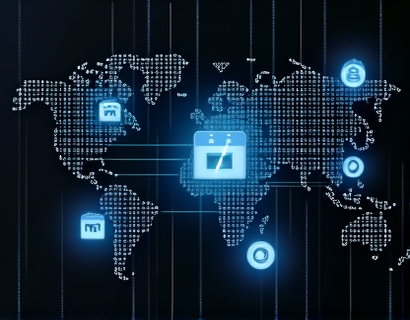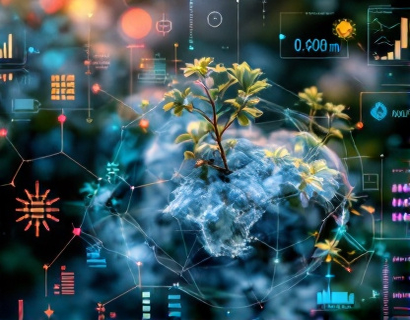Autonomous AI Agents: Streamlining Continuous Objectives for Enhanced Business and Personal Productivity
In the rapidly evolving landscape of technology, autonomous AI agents have emerged as a pivotal force in transforming how businesses and individuals manage their daily tasks and long-term objectives. These intelligent systems operate independently, continuously managing a wide array of tasks, allowing humans to focus on higher-value activities that drive innovation and growth. This article explores the profound impact of autonomous AI agents on productivity, offering insights and strategies to leverage these technologies for enhanced efficiency and competitive advantage.
The Evolution of AI in Productivity
The journey of AI in enhancing productivity began with basic automation tools designed to handle repetitive and mundane tasks. Over time, these tools have evolved into sophisticated AI systems capable of learning, adapting, and making decisions with minimal human intervention. Autonomous AI agents represent the next frontier in this evolution, combining advanced machine learning algorithms with real-time data processing to manage complex and dynamic objectives.
These agents are not just about automating tasks; they are about optimizing workflows, predicting challenges, and proactively addressing them. By continuously monitoring and adjusting to changing conditions, autonomous AI agents ensure that objectives are met efficiently and effectively, even in the most unpredictable environments.
Key Features of Autonomous AI Agents
Autonomous AI agents possess several key features that make them invaluable tools for streamlining operations and enhancing productivity:
- Continuous Task Management: These agents can handle a wide range of tasks, from scheduling and resource allocation to data analysis and reporting. They operate 24/7, ensuring that no task falls through the cracks.
- Adaptive Learning: Through machine learning, autonomous AI agents improve their performance over time. They learn from past experiences and adapt to new scenarios, becoming more efficient and effective in their operations.
- Real-Time Decision Making: Equipped with advanced analytics, these agents can process vast amounts of data in real-time, making informed decisions quickly and accurately. This capability is crucial in fast-paced business environments where timely decisions can mean the difference between success and failure.
- Integration Capabilities: Autonomous AI agents can seamlessly integrate with existing systems and tools, enhancing their functionality without disrupting current workflows. This integration ensures a smooth transition and maximizes the benefits of the technology.
Benefits for Businesses
For businesses, the adoption of autonomous AI agents brings a multitude of benefits that can significantly enhance operational efficiency and drive growth:
Firstly, these agents help in optimizing resource utilization. By automatically allocating resources based on real-time needs, businesses can reduce waste and improve productivity. For instance, an AI agent can dynamically adjust staff schedules to match peak demand periods, ensuring that the right people are available when needed most.
Secondly, autonomous AI agents reduce the risk of human error. Tasks that are prone to mistakes due to fatigue or distraction can be handled with precision by AI systems. This not only improves the quality of work but also enhances customer satisfaction and trust.
Thirdly, these agents enable businesses to focus on strategic initiatives. By offloading routine and repetitive tasks, executives and employees can devote more time to innovation, strategic planning, and high-value activities that drive business growth. This shift in focus can lead to a more agile and responsive organization, better equipped to navigate market changes.
Benefits for Individuals
Individuals can also reap significant benefits from the use of autonomous AI agents in their personal and professional lives:
For personal productivity, AI agents can manage calendars, reminders, and to-do lists, ensuring that nothing important is overlooked. They can also assist in time management by analyzing work patterns and suggesting optimal schedules for tasks, helping individuals achieve a better work-life balance.
In the professional realm, autonomous AI agents can handle administrative tasks such as email management, data entry, and report generation. This allows professionals to concentrate on core activities that leverage their unique skills and expertise, leading to higher job satisfaction and career advancement.
Moreover, these agents can provide valuable insights through data analysis. By processing and interpreting large datasets, AI agents can identify trends, predict outcomes, and offer actionable recommendations, empowering individuals to make informed decisions.
Implementing Autonomous AI Agents
Implementing autonomous AI agents requires a strategic approach to maximize their benefits:
First, it is essential to identify the specific tasks and objectives that can be automated. Conduct a thorough analysis of current workflows to pinpoint areas where AI can add the most value. Focus on tasks that are repetitive, time-consuming, or prone to errors.
Next, choose the right AI solution that aligns with your needs. Consider factors such as integration capabilities, scalability, and the level of customization required. It is crucial to select a solution that can grow with your business and adapt to changing requirements.
Once the solution is in place, ensure proper training and support for users. While AI agents are designed to operate autonomously, initial setup and configuration may require technical expertise. Providing adequate training and support can help users fully leverage the technology and address any issues that arise.
Finally, continuously monitor and evaluate the performance of the AI agents. Collect feedback and data to identify areas for improvement and optimize the agents' performance over time. This iterative process ensures that the agents remain effective and efficient in achieving their objectives.
Challenges and Considerations
While the benefits of autonomous AI agents are clear, there are also challenges and considerations to keep in mind:
One significant challenge is the initial investment required to implement these systems. While the long-term savings and efficiency gains can justify the cost, the upfront expenses can be a barrier for some organizations. It is important to conduct a cost-benefit analysis to ensure that the investment aligns with business goals.
Another consideration is the potential impact on employment. As AI agents take over routine tasks, there may be concerns about job displacement. However, it is crucial to view AI as a tool that enhances human capabilities rather than replaces them. By focusing on tasks that require human creativity, critical thinking, and emotional intelligence, organizations can create a symbiotic relationship between humans and AI.
Data privacy and security are also paramount. Autonomous AI agents handle sensitive information, and ensuring the protection of this data is critical. Implement robust security measures and comply with relevant regulations to safeguard against data breaches and maintain trust.
Future Trends in Autonomous AI
The field of autonomous AI is rapidly advancing, with several trends shaping its future:
First, the integration of AI with other emerging technologies such as the Internet of Things (IoT), 5G, and edge computing will enhance the capabilities of autonomous agents. These technologies will provide richer data sources and faster processing speeds, enabling more sophisticated and responsive AI systems.
Second, there is a growing focus on explainable AI (XAI), which aims to make AI decision-making processes more transparent and understandable. As AI becomes more prevalent, stakeholders will demand greater clarity and accountability in how decisions are made.
Third, the development of more generalized AI systems that can handle a broader range of tasks without extensive retraining is on the horizon. These systems will be more versatile and adaptable, further expanding the potential applications of autonomous AI.
Conclusion
Autonomous AI agents are transforming the way businesses and individuals manage their tasks and objectives, offering unparalleled benefits in terms of efficiency, accuracy, and productivity. By continuously handling routine tasks and providing valuable insights, these agents enable humans to focus on higher-value activities that drive innovation and growth. As the technology continues to evolve, embracing autonomous AI agents will be crucial for staying competitive in an increasingly dynamic world.











































